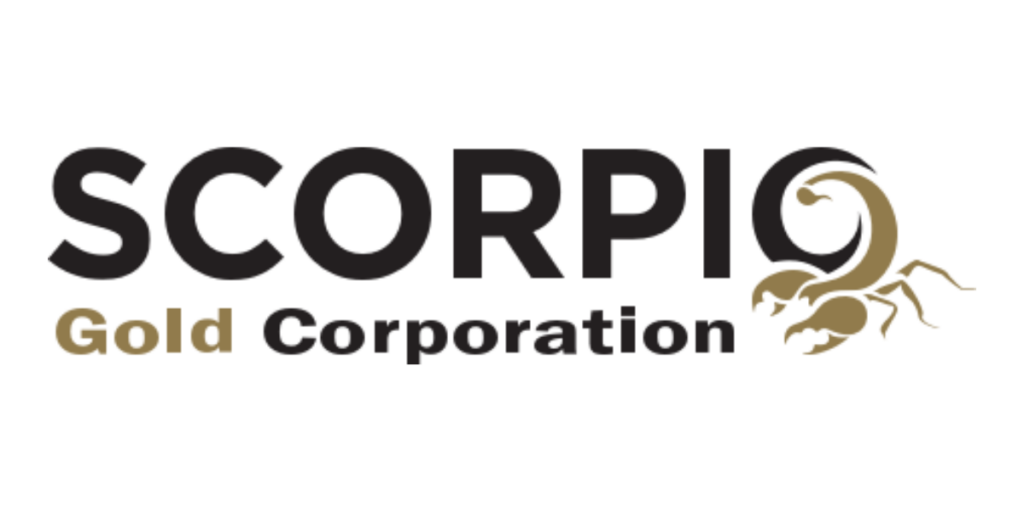Vancouver, BC December 8, 2020 – KORE Mining Ltd. (TSXV: KORE | OTCQX: KOREF) (“KORE” or the “Company”) is pleased to announce positive sampling and mapping program results from the Mesquite-Imperial-Picacho District exploration (“District”) on the Imperial Gold project (“Imperial”), which is nine miles southeast from Equinox Gold’s (TSX: EQX) Mesquite gold mine (“Mesquite”).
Highlights:
- Discovered gold in several dry stream beds between Mesquite and Imperial
- Highlight samples include 1.4 g/t and 0.5 g/t gold
- Enhances thesis that fault structures from Mesquite to Imperial have potential to host multiple gold discoveries similar in scale to Mesquite or Imperial
- Geophysical interpretation previously defined 19 kilometers of fault structures including:
- Mesquite East, Ogilby, Imperial East and Imperial West target areas
- Each multi-kilometer target area has potential to host a new gold deposit
- More outcrop sampled than anticipated, indicating shallow alluvial cover
- Currently permitting a 140+ pad drill program for district scale exploration program
Next Steps
- Complete program sampling on Imperial-Picacho area (complete by January 2021)
- Conduct follow-up detailed soil sampling and geophysics to Prioritize drill targets in H1 2021
- Drill test highest priority targets; permit for larger program now expected mid-2021
KORE’s CEO Scott Trebilcock stated: “We are extremely encouraged to discover stream bed gold occurrences which align with our geophysical model on our Mesquite-Imperial exploration area. The discoveries support our thesis that there are multiple new gold deposits to be discovered close to surface. KORE’s job now is to find the source or sources of the gold by targeting the 19 kilometers of fault structures interpreted earlier this year. Imperial County has over 140 years of gold mining history. The Mesquite-Imperial-Picacho District and the Imperial gold project could extend that history for many future generations with new gold discoveries and provide much needed employment and economic development.”
Figure 1 shows the dry stream bed sampling locations of the assay results. The sampling generated anomalous gold assays in the two targets areas sampled to-date: Mesquite West, and Ogilby.
Figure 2 depicts the western half of the District (Mesquite-Imperial) with three large exploration areas defined by structural interpretation from two rounds of 2020 geophysics – Mesquite East, Ogilby and Imperial West. Having the intact Imperial deposit to “tune” or “fingerprint” geophysical signatures, greatly enhances the confidence to target new discoveries under the alluvium along the trend. Details of the work were released January 7, 2020 and April 29, 2020.
Sampling and Mapping Program Details
Discovery of gold in the dry stream beds (also called “arroyos” or “washes”) on the Mesquite East and Ogilby targets areas, are several kilometers from Mesquite and Imperial and not downstream from either, indicates that gold is being generated from another source. KORE intends to explore for and discover those sources.
In the course of collecting the samples and mapping the area, KORE encountered more outcrop than originally anticipated. This is positive as it means the alluvial cover is shallow in those areas, making a new oxide gold discovery easier and more attractive. KORE also found evidence of historic small scale mining activities including hand and bulldozer trenches, an exploration shaft and signs of historic placer mining activity. The mapping and sampling program continues on the east part of the District towards Picacho.
KORE’s exploration team collected 435 stream bed and rock chip samples over the last three months, prospecting the District. This news release includes results from 199 dry stream bed samples with assays pending on the remainder. Samples collected averaged 6 kilogram in size and were taken at an average depth of 0.4 meters below surface. Of the 199 samples, 95 assayed over the gold detection limit of 5 parts per billion and 49 assayed over 100 parts per billion (0.1 g/t). Samples locations and assays are depicted on Figure 1.
Next Steps
The ongoing 2020 mapping and sampling program will be complete by January 2021. The program was designed to provide an indicative first pass to the District. KORE intends to follow-up on anomalies with further detailed soil sampling grids and detailed geological mapping, and infill geophysics in H1 2021 ahead of the planned 2021 exploration drilling program.
Imperial Project Update
KORE’s development team based in Imperial, California has been active since delivering the positive Preliminary Economic Assessment for the Imperial deposit in April 2020, building the capacity and social license to advance Imperial towards production. COVID-19 has had a major impact on local stakeholders in Imperial County. The team has done an incredible job in the face of this challenge and has worked to support the local community and government agencies in a safe and responsible manner. Recent project activity:
- Opened an office in Imperial County in Q3 2020 under the local banner “Imperial Gold”
- Hired local team of environment, permitting, government relations and community relations experts
- Actively engaging community and government stakeholders with over 100 in-person and Zoom meetings, actively building local social license for Imperial
- Donated COVID-19 test kits and food to local charities supporting those hit hardest by the pandemic
- Engaged environmental and archeological experts to conduct baseline work for project permitting
- Building relationships with local Bureau of Land Management (“BLM”) office and Imperial County permitting agencies
KORE is currently permitting a large 140+ pad drill program via a Plan of Operations (“PO”) process with the BLM local office. KORE had previously planned to permit a smaller program in 2020 using a Notice of Intent process but was required by the BLM to move to the more robust and time intensive PO process including an associated Environmental Assessment (“EA”). Given the robustness of the PO process, KORE decided to increase the scale of the proposed dill program adding time to the re-submission. The process has been further impacted by COVID-19 and permits are now expected in mid-2021.
KORE is committed to operate within the stringent environmental and labour standards of California. KORE plans to concurrently reclaim drill pad locations and ensure measures are taken to mitigate any impacts to biological and cultural resources. KORE has designed the drill program to maximize the existing public road/trail network in the area so as to limit any new disturbances, and the Company will be adjusting our drill pad locations as needed to avoid any sensitive sites should any be encountered during the EA investigations.
About Imperial Gold Project
KORE owns 100% of the Mesquite-Imperial-Picacho District which consists of 26,323 acres on 1,007 claims capturing the entire 28-kilometer trend from the operating Mesquite mine (Equinox Gold – TSX:EQX) to the closed Picacho mine and including KORE’s Imperial project as depicted on Figure 3. In the District, gold is hosted in local fault structures related to a series of regional faults connecting the known District deposits. Those three District deposits (Mesquite-Imperial-Picacho) were discovered in exposed outcrops and from placer workings. The rest of the District is covered by alluvium and has never been systematically explored.
The Mesquite-Imperial-Picacho District centers on KORE’s Imperial project. Imperial is a structurally controlled intermediate sulfidation epithermal gold deposit. The 100% oxide gold deposit is currently defined at 2.44 kilometer long and up to 0.75 kilometer wide and is open both along strike and downdip. It is hosted in a shallowly southwest dipping, amphibolite grade metamorphic rock suite along a west-northwest trending low-angle regional thrust fault system. The thrust fault system controls the regional geometry of mineralization. East-west striking, post-mineralization normal faults control the property scale geometry of mineralization. Geophysical characterization of the deposit and regional controlling structures is an essential component of exploration for additional resources.
Imperial has a mineral resource estimate and a positive preliminary economic assessment effective April 6, 2020 with the following highlights:
- Robust economics: US$ 343 million NPV5% post-tax with 44% IRR at US$1,450 per ounce gold
- Low capital intensity project with only US$ 143 million pre-production capital cost
- 146,000 ounces gold per year over 8 years for 1.2 million ounces total production
- Technically simple project: shallow open pit, run-of-mine heap leach with existing infrastructure
- Value enhancement through Mesquite-Imperial-Picacho District exploration and resource expansion
The Company’s NI 43-101 compliant resource and preliminary economic assessment is titled “Preliminary Economic Assessment – Technical Report Imperial Gold Project” effective as of April 6, 2020 and issued on May 19, 2020, prepared by Terre Lane and Todd Harvey of Global Resource Engineering and Glen Cole of SRK Consulting (Canada) Inc.
About KORE Mining
KORE is 100% owner of a portfolio of advanced gold exploration and development assets in California and British Columbia. KORE is supported by strategic investor Eric Sprott who recently invested $7.0 million, bringing his total ownership to 26%. KORE management and Board are aligned with shareholders, owning an additional 38% of the basic shares outstanding. KORE is actively developing its Imperial Gold project and is aggressively exploring across its portfolio of assets.
Further information on Imperial and KORE can be found on the Company’s website at www.koremining.com or by contacting us as info@koremining.com or by telephone at (888) 407-5450.
On behalf of KORE Mining Ltd
”Scott Trebilcock”
Chief Executive Officer
(888) 407-5450
Investor Relations
Arlen Hansen, KIN Communications
1-888-684-6730
kore@kincommunications.com
Technical information with respect to the District and Imperial Gold Project contained in this news release has been reviewed and approved by Marc Leduc, P.Eng, who is KORE’s COO and is the qualified person under National Instrument 43-101 responsible for the technical matters of this news release.
Neither the TSX Venture Exchange nor its Regulation Services Provider (as that term is defined in the policies of the TSX Venture Exchange) accepts responsibility for the adequacy or accuracy of this release.
Cautionary Statement Regarding Forward-Looking Information
This news release contains forward-looking statements relating to the future operations of the Company and other statements that are not historical facts. Forward-looking statements are often identified by terms such as “will”, “may”, “should”, “anticipate”, “expects”, “intends”, “indicates” and similar expressions. All statements other than statements of historical fact, included in this release, including, without limitation, statements regarding the future plans and objectives of the Company are forward-looking statements. Forward-looking statements in this news release include, but are not limited to, statements with respect to: final results of future exploration work, including further mapping and sampling and the timeline for completion, the results of the PEA, including future Project opportunities, , the projected NPV, , permit timelines, and the ability to obtain the requisite permits, the market and future price of and demand for gold, , and the ongoing ability to work cooperatively with stakeholders, including the all levels of government. Such forward-looking statements, and any assumptions upon which they are based, are made in good faith and reflect our current judgment regarding the direction of our business. Management believes that these assumptions are reasonable. Forward looking information involves known and unknown risks, uncertainties and other factors which may cause the actual results, performance or achievements of the Company to be materially different from any future results, performance or achievements expressed or implied by the forward-looking information.
Such factors include, among others: risks related to exploration and development activities at the Company’s projects, and factors relating to whether or not mineralization extraction will be commercially viable; risks related to mining operations and the hazards and risks normally encountered in the exploration, development and production of minerals, such as unusual and unexpected geological formations, rock falls, seismic activity, flooding and other conditions involved in the extraction and removal of materials; uncertainties regarding regulatory matters, including obtaining permits and complying with laws and regulations governing exploration, development, production, taxes, labour standards, occupational health, waste disposal, toxic substances, land use, environmental protection, site safety and other matters, and the potential for existing laws and regulations to be amended or more stringently implemented by the relevant authorities; uncertainties regarding estimating mineral resources, which estimates may require revision (either up or down) based on actual production experience; risks relating to fluctuating metals prices and the ability to operate the Company’s projects at a profit in the event of declining metals prices and the need to reassess feasibility of a particular project that estimated resources will be recovered or that they will be recovered at the rates estimated; risks related to title to the Company’s properties, including the risk that the Company’s title may be challenged or impugned by third parties; the ability of the Company to access necessary resources, including mining equipment and crews, on a timely basis and at reasonable cost; competition within the mining industry for the discovery and acquisition of properties from other mining companies, many of which have greater financial, technical and other resources than the Company, for, among other things, the acquisition of mineral claims, leases and other mineral interests as well as for the recruitment and retention of qualified employees and other personnel; access to suitable infrastructure, such as roads, energy and water supplies in the vicinity of the Company’s properties; and risks related to the stage of the Company’s development, including risks relating to limited financial resources, limited availability of additional financing and potential dilution to existing shareholders; reliance on its management and key personnel; inability to obtain adequate or any insurance; exposure to litigation or similar claims; currently unprofitable operations; risks regarding the ability of the Company and its management to manage growth; and potential conflicts of interest.
In addition to the above summary, additional risks and uncertainties are described in the “Risks” section of the Company’s management discussion and analysis for the year ended December 31, 2019 prepared as of April 27, 2020 available under the Company’s issuer profile on www.sedar.com.
Forward-looking statements contained herein are made as of the date of this news release and the Company disclaims any obligation to update any forward-looking statements, whether as a result of new information, future events or results, except as may be required by applicable securities laws. There can be no assurance that forward-looking information will prove to be accurate, as actual results and future events could differ materially from those anticipated in such statements. Accordingly, readers should not place undue reliance on forward-looking information.
There is no certainty that all or any part of the mineral resource will be converted into mineral reserve. It is uncertain if further exploration will allow improving the classification of the Indicated or Inferred mineral resource. Mineral resources are not mineral reserves and do not have demonstrated economic viability.
FIGURE 1: DRY STREAM / “ARROYO” SAMPLING – GOLD ANOMALY MAP
FIGURE 2: IMPERIAL TO MESQUITE STRUCTURAL INTERPRETATION
FIGURE 3: IMPERIAL GOLD PROJECT CLAIMS MAP







